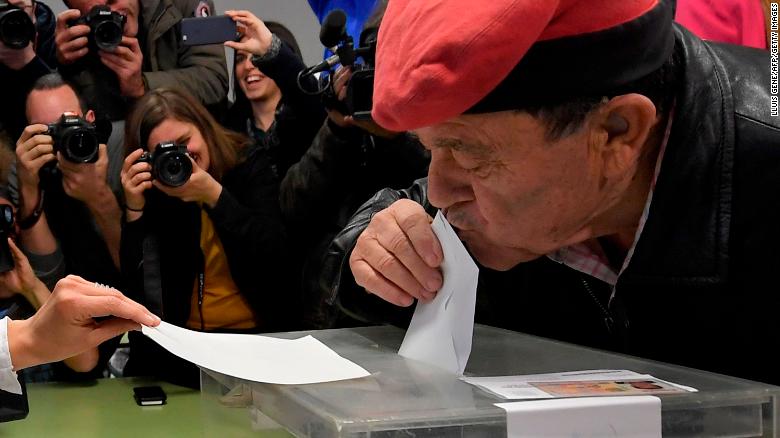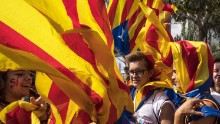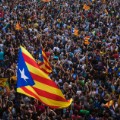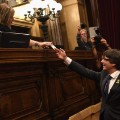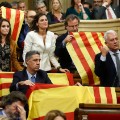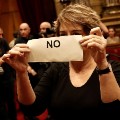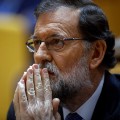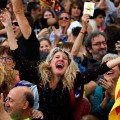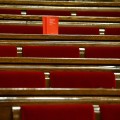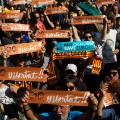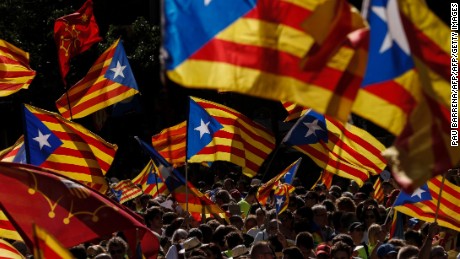Story highlights
- Pro-independence parties won 70 seats in the election, enough to form a coalition government
- Center-right Ciudadanos (Citizens) became the largest party in parliament with 37 seats
(CNN)Catalonia's political crisis is unresolved after fresh elections called by the Spanish government.
After a record turnout of over 80%, the region's voters again favored the pro-independence parties by a slim margin over those opposing independence for Spain's richest region.
The goal of Spanish Prime Minister Mariano Rajoy to lance the boil of the Catalan separatist movement through this vote backfired.
The Catalan government was removed by the Madrid government in October after the local parliament declared unilateral independence for the region.
But the pro-independence parties will be heartened by the resilience of their vote in this election, even as several of their leaders remain in prison and others are in self-imposed exile outside the country.
The result suggests further uncertainty in a region that accounts for a fifth of Spain's economy, and weeks of haggling over the formation of a regional government, with seven parties represented in the parliament. The pro-independence parties are not exactly a coherent bloc.
The pro-independence parties took 70 of the 135 seats in the regional parliament, retaining their overall majority. They won 72 seats in 2015. But again they won a fraction less than half of the votes cast (nearly 48%), slightly less than they did in 2015.
Never strong in Catalonia, the Popular Party (PP) of Spanish Prime Minister Mariano Rajoy was reduced to three seats from 11 at the last elections. For Rajoy and his party, the result was a bitter disappointment. Party spokesman Rafael Hernando said only that the government and Senate in Madrid remained the most solid guarantee against the forces of independence.
The party with the most to celebrate was the center-right Ciudadanos (Citizens), which became the largest in the Catalan parliament, with 37 seats. It opposes Catalan secession from Spain, but has taken a more conciliatory line than the PP.
Turnout was 82%, much higher than the 75% in the last elections in 2015. By contrast with the sometimes violent and chaotic referendum at the beginning of October, Thursday's vote was orderly -- with long lines forming at polling stations.
Rajoy's attempt to resolve the crisis through new elections has only cemented the status quo. But the pro-independence parties will probably think twice before trying an encore in declaring Catalonia's separation from Spain, given the sequence of events that was triggered in October.
The upheaval began with the Catalan government organizing a referendum on the region's future on October 1, despite it being declared illegal by Spain's Constitutional Court.
The vote was marred by violence, with the Civil Guard sent in by Madrid to try to prevent voting. Despite a boycott by most pro-union voters, the separatist parties used the result to push the declaration of independence through parliament.
That led Madrid to dissolve the Catalan government, arrest leading pro-independence politicians and call fresh elections.
The pro-union parties campaigned on a return to calm and stability -- with the restoration of self-government for Catalonia within Spain. The pro-independence parties pointed to the violence in October and subsequent arrests as the behavior of an oppressive state.
As the results came in, Agusti Alcoberro of the pro-independence Catalan National Assembly called for the immediate release of its leader Jordi Sanchez and others he described as "political prisoners."
The turmoil has had a chilling effect on Catalonia's economy. Foreign investment fell by 75% in the third quarter of this year compared to a year ago. Two of Spain's largest banks -- Caixa and Sabadell -- decided to move their headquarters out of Catalonia -- as did some 3,000 other companies.
The former President of Catalonia, Carlos Puidgemont, who led the drive for independence, fled Spain soon after being charged with sedition. He watched Thursday's results from Brussels, where he said it was "not a normal day with candidates in prison and in exile." But his party did surprisingly well, netting 34 seats.
Puidgemont has called for a return to normality. That's exactly the word that Prime Minister Rajoy has used. Their definitions of what is normal remain poles apart. But after this election, Puidgemont will undoubtedly be the happier of the two.
